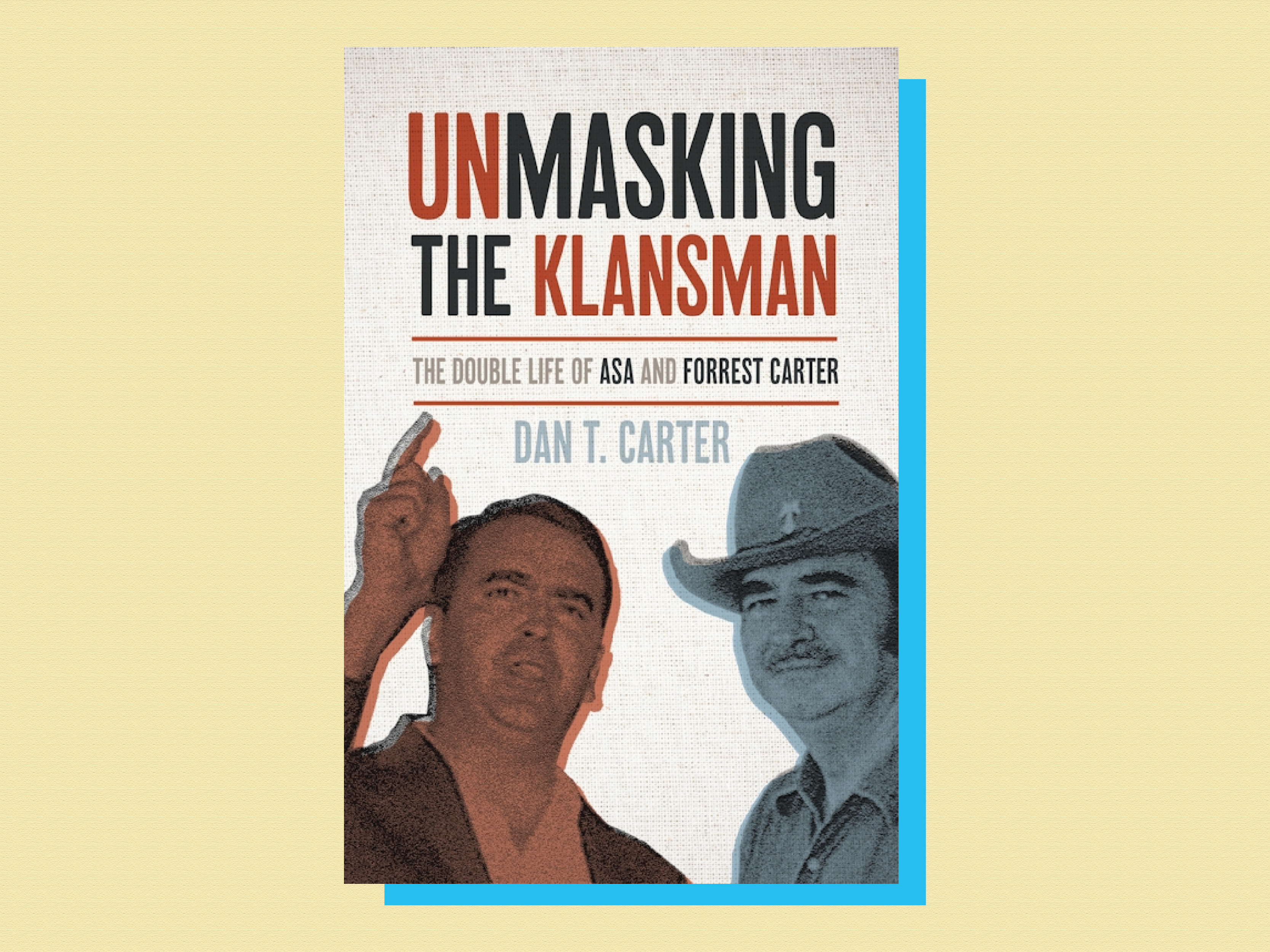Historian Dan Carter seeks to find the truth behind an Alabama Klansman in “Unmasking the Klansman: The Double Life of Asa and Forrest Carter.”
Before Asa Carter’s (no relation to the author) stint as a right wing radio announcer and reverend in the 1950’s, he began reading far-right, pro-fascist ideas during his time in the U.S. Navy, Dan Carter said. This led him to his career in radio before becoming a speechwriter for Alabama Governor George Wallace. Asa later wrote one of Wallace’s most famous speeches, in which he declared, “Segregation today, segregation tomorrow, segregation forever,” in 1963.
But tides began to turn just one year later when the Civil Rights Act was passed in 1964. By 1970, Asa dropped his career as a speechwriter and radio announcer and pivoted to writing. With that came an entirely new life.
Asa Carter moved to Texas, landing in Abilene. He claimed he was a Cherokee American and called himself “Forrest,” abandoning his real name. Though the Native Cherokee people recognized he was a fraud, Asa Carter would see success with his first book, “The Rebel Outlaw: Josey Wales.”
An agent in New York saw Asa’s novel as “the perfect Clint Eastwood film,” Dan said. “All of a sudden he goes from being a right wing fascist to the author of a book that not only is made into a movie, but becomes a bestseller.”
Asa Carter’s next bestselling novel, “The Education of Little Tree,” was a memoir of his life growing up as a Cherokee American, though the novel was a false narrative as Asa was not from the Cherokee tribe.
In October 1990, Dan Carter wrote a piece for the New York Times exposing Asa’s untrue story, but it made no difference to many readers as the book sold over a million copies, he said.
“It’s just fascinating to me that you can go from being an out racist, which he was to the end of his life, but he can find a zeitgeist in America and go from one end to the other,” the North Carolina-based author said.
Asa Carter died in 1979, but Dan believes Asa’s life and legacy parallels the current state of American society.
“Through him, you can see how some of the most important political developments of the 1950’s go back to the 1930’s and how that evolves through the anti-Civil Rights movement,” Dan said. “I believe you can follow him and see the destination, which is white Christian nationalism that we have today.”
















